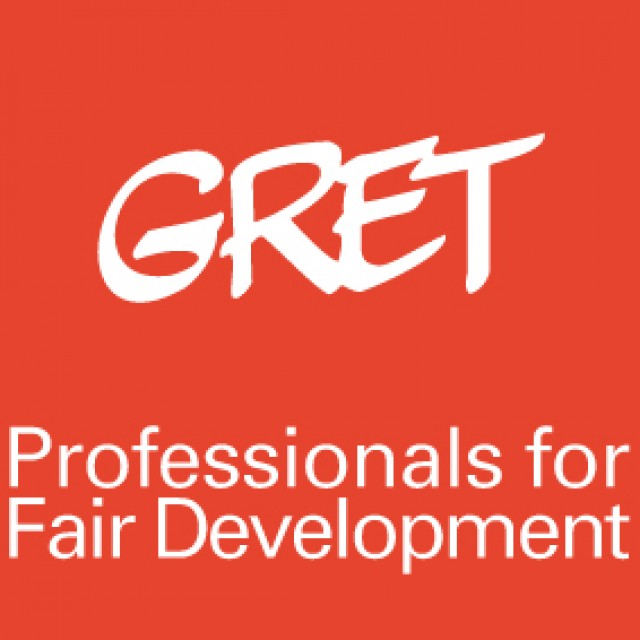Location
Groupe de Recherches et d'Echanges Technologiques (GRET) (French, Group For Research and Technology Exchanges) is a non-governmental association supporting international cooperation, professional solidarity and poverty reduction in the countries of Asia, Africa, Europe and Latin America. It was established in the late 1970s.
Its activities include implementation of field projects, expertise, studies, research, running information and exchange networks. The main spheres of attention are:
- Access to Essential Services
- Sustainable Food and Agriculture
- Institutional Development, Actors, Territories
- Information and Communication for Development
- Microfinance and Small Enterprise
- Public Policies and International Regulations.
The Association is financed mainly by the European Union, the World Bank, the French Ministry of Foreign Affairs, the French Development Agency and also by the Asian Development Bank, Unicef, USAID and many others.
Members:
Resources
Displaying 36 - 40 of 87Gouvernance foncière : quel bilan quatre ans après l’adoption des Directives volontaires ?
Le 19 octobre 2016, à Rome, le Comité de la sécurité alimentaire mondiale (CSA) a organisé une session de suivi de la mise en œuvre des décisions et recommandations du CSA dédiée aux Directives volontaires pour une gouvernance responsable des régimes fonciers applicables aux terres, aux pêches et aux forêts (DV1), quatre ans après leur adoption.
Le pastoralisme, un mode de vie résilient face à de nombreux défis
L’élevage pastoral et agropastoral (ou pastoralisme) est un système de production basé sur un élevage extensif valorisant majoritairement les parcours naturels. Utilisé par des communautés qui vivent dans des contextes souvent marginaux, il est associé à un mode de vie fondé sur un lien particulier entre l’homme, l’animal et la nature.
Gouvernance foncière : quel bilan quatre ans après l’adoption des Directives volontaires ?
Le 19 octobre 2016, à Rome, le Comité de la sécurité alimentaire mondiale (CSA) a organisé une session de suivi de la mise en œuvre des décisions et recommandations du CSA dédiée aux Directives volontaires pour une gouvernance responsable des régimes fonciers applicables aux terres, aux pêches et aux forêts (DV1), quatre ans après leur adoption.
Comments on the proposed environmental code of cambodia (V6) and proposed amendments for a better recognition of customary tenure rights in protected areas
The « Environment and Natural Resources Code of Cambodia » (Sixth Draft – – 20 November 2016) is a very extensive proposed law (535 pages !) which will have, if adopted, major impacts on many aspects of Cambodian development (Mines, Energy, Urban planning, etc..) but is particularly important for the management of Protected Areas and of Forests and Fisheries. The code has been elaborated by a panel of experts and several working groups led by Vishnu Law Group. A public national consultation has been organized by MOE in Dec 2016.
LAND TENURE IN RURAL LOWLAND MYANMAR - From historical perspectives to contemporary realities in the Dry zone and the Delta - English, Burmese (မြန်မာဘာသာ)
This study emerged out of an identified need to document social
processes leading to land insecurity, and those leading to investment
and sustainable use of lands by rural populations. Focusing on the
Delta and Dry Zone, the main paddy producing regions of Myanmar,
this analysis unravels the powers at play in shaping rural households’
relationship to land. From British colonization to the 2012 reforms,
many issues have remained relatively unchanged with regards to
local dynamics of landlessness, exclusion processes, local power plays,





